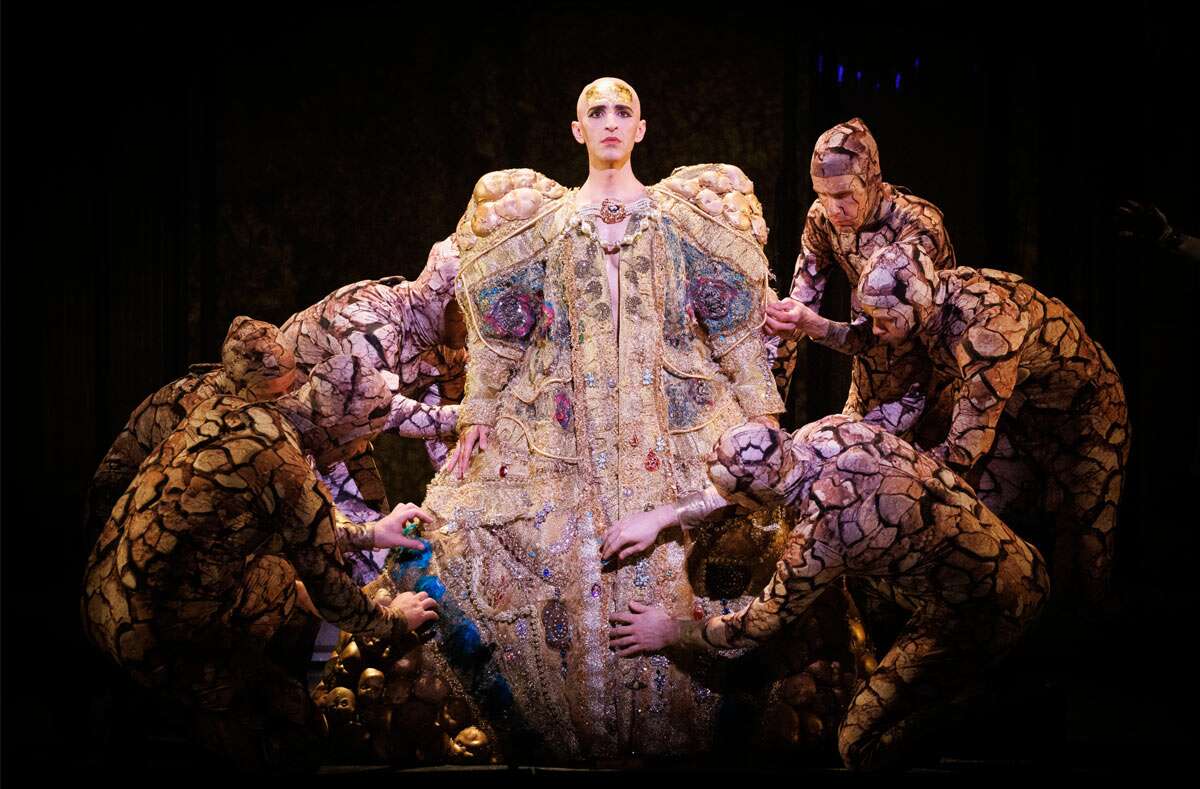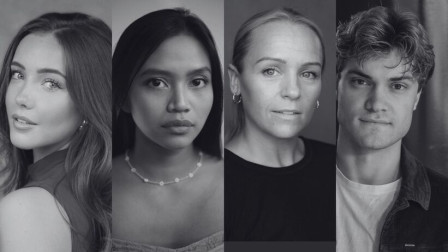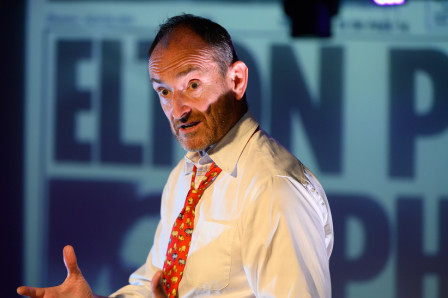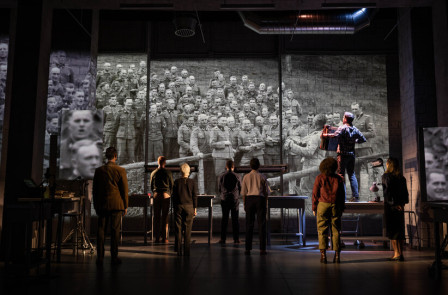Review: AKHNATEN at ENO London Coliseum
Forming the last part of Philip Glass’ trilogy of what he termed portrait operas in which he cast an eye over the lives of three notable figures from the worlds of science, politics and religion, Akhnaten follows Einstein and Gandhi as his final subject for treatment.
 ENO Akhnaten 2023, Akhnaten played by Anthony Roth Costanzo © Belinda Jiao
ENO Akhnaten 2023, Akhnaten played by Anthony Roth Costanzo © Belinda Jiao
Inheriting the Upper and Lower Egyptian kingdoms as Amenhotep IV, the pharaoh is historically noteworthy for having rejected the established practice of covering one’s bases by worshipping a multitude of gods and instead chose to focus his and therefore his nation’s adoration solely upon the sun God Aten. Casting himself as a radical and enlightened thinker, during his 17 year reign he had an entirely new capital built, but little remains of the city of Amarna and most records of Akhnaten were eradicated by his successor Tutankhamen (probably his son — though expert opinion differs) and others who followed as they reverted to the polytheism of the old kingdom. In terms of legacy, the pharaoh was subsequently cast as a heretic and traitor due mainly to his inability/reluctance to send troops to defend his land from foreign invaders. Consequently he was almost lost to history.
And so to the opera itself, which was completed by the American composer in 1983 and premiered at Stuttgart a year later. The iteration currently playing to appreciative audiences at the London Coliseum with stage sets and projections designed by Tom Pye, costumes by Kevin Pollard and lighting by Bruno Poet (with revival revisions by Gary James) began life in Los Angeles and first reached ENO in 2016. Whilst it is undoubtedly a modern opera with throbbing rhythmic pacing and a lack of traditional arias, the depiction of the 18th Dynasty isn’t simply a matter of style over substance. Renowned counter tenor Anthony Roth Costanzo once again takes the title role for which he has become famous in Opera houses around the world and with Chrystal E. Williams as Nefertiti and 6’6” Zachary James as the Scribe, the revival is in safe hands.
Glass’ trademark layered phrase repetitions (here under the command of Karen Kamensek’s assured baton) lend themselves to a stylised and measured movement palette. But through Phelim McDermott’s direction, scenes also incorporate complex juggling routines (performed by artists of the Gandini Juggling Company supported by members of the chorus) which either emulate or are at counterpoint to the main rhythms — and sometimes both simultaneously. Thus, with arresting sets, costumes and constantly graduating lighting states, the production is a feast of visuals and for much of the opera it is difficult to know where to focus one’s attention for fear of missing a nuanced aspect or other.
There is a preponderance of un-lyricised sung parts, however historical texts (in Akkadian, Egyptian and Biblical Hebrew — which includes a poem from the Book of the Dead) are incorporated and serve to fill the gaps. If you are familiar with Philip Glass’ work, you’ll undoubtedly love this. If you need Puccini-esque soaring romantic arias when you attend the opera, this might be less of your thing.
Latest News

 Beatrice Penny-Touré to join West End production of THE PHANTOM OF THE OPERA
6 February 2026 at 13:59
Beatrice Penny-Touré to join West End production of THE PHANTOM OF THE OPERA
6 February 2026 at 13:59

 Initial cast and creative team for ROSIE A NEW MUSICAL West End premiere concert
6 February 2026 at 10:02
Initial cast and creative team for ROSIE A NEW MUSICAL West End premiere concert
6 February 2026 at 10:02

 Review: MONSTERING THE ROCKETMAN at Arcola Theatre
6 February 2026 at 09:01
Review: MONSTERING THE ROCKETMAN at Arcola Theatre
6 February 2026 at 09:01

 HERE THERE ARE BLUEBERRIES at Stratford East - First look images released
5 February 2026 at 15:35
HERE THERE ARE BLUEBERRIES at Stratford East - First look images released
5 February 2026 at 15:35